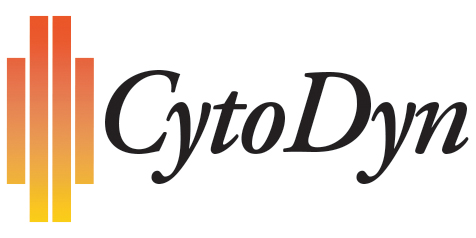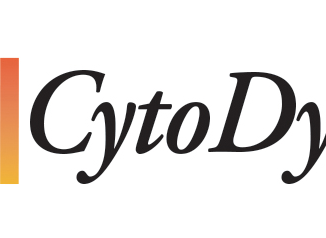
Dr. Richard Pestell, who leads CytoDyn’s cancer, NASH and GvHD programs, recently named to The Order of Australia, established by Queen Elizabeth II
VANCOUVER, Washington, June 19, 2019 — CytoDyn Inc. (otc.qb:CYDY), (“CytoDyn” or the “Company”), a late stage biotechnology company developing leronlimab (PRO 140), a CCR5 antagonist with the potential for multiple therapeutic indications, today announced the filing of a pre-submission application for a meeting with the U.S. Food and Drug Administration (“FDA”) to discuss the 510(k) application for FDA clearance of the ProstaGene(TM) Prognostic Test. The ProstaGene(TM) Prognostic Test is intended for use in patients who have undergone a prostate biopsy and been found to have prostate cancer by the Gleason score. The ProstaGene(TM) Prognostic Test was developed by Dr. Richard Pestell, A.O., M.D., Ph.D., F.A.C.P., M.B.A., CytoDyn’s Chief Medical Officer. The test became an asset of CytoDyn upon its acquisition in November 2018 of ProstaGene, a biotechnology company founded by Dr. Pestell.
The application for FDA clearance of the ProstaGene(TM) Prognostic Test will be supported by a previously published retrospective clinical study in two populations of men (79 and 139 men) and a subsequent study in 130 men. A recent study of 218 men determined that the signature provided substantial value added to the Gleason score in patients with an intermediate Gleason score. The prognostic test has been developed to use certain gene technology platforms.
“The inability to determine which cases of prostate cancer may be aggressive leads to significant and, often, unnecessary highly invasive treatment,” stated Dr. Pestell. “The over-treatment of prostate cancer carries with it significant and potentially life-long debilitating quality of life issues and significant unnecessary costs,” continued Dr. Pestell. “The development of an FDA-cleared prostate cancer prognostic test may aid patients and physicians in better decision-making. We are currently assessing commercialization alternatives for the ProstaGene(TM) Prognostic Test, including potentially value-accretive partnerships,” concluded Dr. Pestell.
“With today’s significant step forward on the road to seeking FDA clearance for the ProstaGene(TM) Prognostic Test, we stand at the doorstep of potentially transforming how prostate cancer is diagnosed,” stated Nader Pourhassan, Ph.D., CytoDyn’s President and CEO. “And we owe it all to Dr. Pestell, the inventor of the ProstaGene(TM) Prognostic Test, who as our Chief Medical Officer, leads our cancer, NASH and GvHD programs,” continued Dr. Pourhassan. “The progress that we are announcing today with the ProstaGene(TM) Prognostic Test is particularly notable because this asset offers a potentially significant opportunity for non-dilutive financing through a strategic partnership,” he added. “CytoDyn acquired the ProstaGene(TM) Prognostic Test just eight months ago as part of the acquisition of ProstaGene, which has since added a new dimension of opportunities for our lead drug candidate leronlimab in numerous metastatic solid tumors, NASH and GvHD indications,” Dr. Pourhassan concluded.
“All of us at CytoDyn also want to take this opportunity to publicly congratulate Dr. Pestell on being awarded The Order of Australia by Her Majesty Queen Elizabeth II,” stated Dr. Pourhassan. The Order of Australia was established in 1975 by Her Majesty Queen Elizabeth II on the recommendation of the Prime Minister of Australia to recognize Australian citizens for distinguished service of a high degree to Australia or to humanity at large.
“I am deeply humbled by this honor,” stated Dr. Pestell. “The award, coming on the cusp of what may very well be a defining year in CytoDyn’s history, provides recognition to the entire CytoDyn team for the momentous efforts to hopefully bring leronlimab to FDA approval,” Dr. Pestell continued. “Thank you to Her Majesty Queen Elizabeth II and The Governor General of Australia for this recognition,” concluded Dr. Pestell.
About Prostate Cancer
Prostate cancer is the second most common diagnosed cancer among men, behind skin cancer. Each year, according to www.cancer.net, approximately 174,650 men in the United States will be diagnosed with prostate cancer. Approximately 31,620 men will die from prostate cancer. Worldwide, there are an estimated 1,600,000 new cases of prostate cancer annually and 366,000 prostate cancer deaths annually, making it one of the most commonly diagnosed cancers in men. Unfortunately, the current clinical tests do not determine definitively whether the prostate cancer is the type of cancer that will result in death if not treated aggressively. On the other hand, aggressive treatment has significant long-term side effects, (incontinence, erectile dysfunction, and urinary dribbling), and should be avoided when unnecessary. The ProstaGene(TM) Prognostic Test uses a gene signature and computer algorithm to create a score that may more reliably guide patients and their doctors to make an informed decision about prostate cancer treatment.
About Leronlimab (PRO 140)
The U.S. Food and Drug Administration (FDA) has granted a “Fast Track” designation to CytoDyn for two potential indications of leronlimab for deadly diseases. The first as a combination therapy with HAART for HIV-infected patients and the second is for metastatic triple-negative breast cancer. Leronlimab is an investigational humanized IgG4 mAb that blocks CCR5, a cellular receptor that is important in HIV infection, tumor metastases, and other diseases including NASH. Leronlimab has successfully completed nine clinical trials in over 700 people, including meeting its primary endpoints in a pivotal Phase 3 trial (leronlimab in combination with standard anti-retroviral therapies in HIV-infected treatment-experienced patients).
In the setting of HIV/AIDS, leronlimab is a viral-entry inhibitor; it masks CCR5, thus protecting healthy T cells from viral infection by blocking the predominant HIV (R5) subtype from entering those cells. Leronlimab has been the subject of nine clinical trials, each of which demonstrated that leronlimab can significantly reduce or control HIV viral load in humans. The leronlimab antibody appears to be a powerful antiviral agent leading to potentially fewer side effects and less frequent dosing requirements compared with daily drug therapies currently in use.
In the setting of cancer, research has shown that CCR5 plays an important role in tumor invasion and metastasis. Increased CCR5 expression is an indicator of disease status in several cancers. Published studies have shown that blocking CCR5 can reduce tumor metastases in laboratory and animal models of aggressive breast and prostate cancer. Leronlimab reduced human breast cancer metastasis by >98% in a murine xenograft model. CytoDyn is therefore conducting a Phase 2 human clinical trial in metastatic triple-negative breast cancer and was granted Fast Track designation in May 2019. Additional research is being conducted with leronlimab in the setting of cancer and NASH with plans to conduct additional clinical studies when appropriate.
The CCR5 receptor appears to play a central role in modulating immune cell trafficking to sites of inflammation and may be important in the development of acute graft-versus-host disease (GvHD) and other inflammatory conditions. Clinical studies by others further support the concept that blocking CCR5 using a chemical inhibitor can reduce the clinical impact of acute GvHD without significantly affecting the engraftment of transplanted bone marrow stem cells. CytoDyn is currently conducting a Phase 2 clinical study with leronlimab to further support the concept that the CCR5 receptor on engrafted cells is critical for the development of acute GvHD and that blocking this receptor from recognizing certain immune signaling molecules is a viable approach to mitigating acute GvHD. The FDA has granted “orphan drug” designation to leronlimab for the prevention of graft-versus-host disease (GvHD).
About CytoDyn
CytoDyn is a biotechnology company developing innovative treatments for multiple therapeutic indications based on leronlimab, a novel humanized monoclonal antibody targeting the CCR5 receptor. CCR5 appears to play a key role in the ability of HIV to enter and infect healthy T-cells. The CCR5 receptor also appears to be implicated in tumor metastasis and in immune-mediated illnesses, such as graft-vs-host disease (GvHD) and NASH. CytoDyn has successfully completed a Phase 3 pivotal trial with leronlimab in combination with standard anti-retroviral therapies in HIV-infected treatment-experienced patients. CytoDyn plans to seek FDA approval for leronlimab in combination therapy and plans to complete the filing of a Biologics License Application (BLA) in 2019 for that indication. CytoDyn is also conducting a Phase 3 investigative trial with leronlimab (PRO 140) as a once-weekly monotherapy for HIV-infected patients and, plans to initiate a registration-directed study of leronlimab monotherapy indication, which if successful, could support a label extension. Clinical results to date from multiple trials have shown that leronlimab (PRO 140) can significantly reduce viral burden in people infected with HIV with no reported drug-related serious adverse events (SAEs). Moreover, results from a Phase 2b clinical trial demonstrated that leronlimab monotherapy can prevent viral escape in HIV-infected patients, with some patients on leronlimab monotherapy remaining virally suppressed for more than four years. CytoDyn is also conducting a Phase 2 trial to evaluate leronlimab for the prevention of GvHD and has received clearance to initiate a clinical trial with leronlimab in metastatic triple-negative breast cancer. More information is at www.cytodyn.com.
Forward-Looking Statements
This press release contains certain forward-looking statements that involve risks, uncertainties and assumptions that are difficult to predict. Words and expressions reflecting optimism, satisfaction or disappointment with current prospects, as well as words such as “believes,” “hopes,” “intends,” “estimates,” “expects,” “projects,” “plans,” “anticipates” and variations thereof, or the use of future tense, identify forward-looking statements, but their absence does not mean that a statement is not forward-looking. The Company’s forward-looking statements are not guarantees of performance, and actual results could vary materially from those contained in or expressed by such statements due to risks and uncertainties including: (i) the sufficiency of the Company’s cash position, (ii) the Company’s ability to raise additional capital to fund its operations, (iii) the Company’s ability to meet its debt obligations, if any, (iv) the Company’s ability to enter into partnership or licensing arrangements with third parties, (v) the Company’s ability to identify patients to enroll in its clinical trials in a timely fashion, (vi) the Company’s ability to achieve approval of a marketable product, (vii) the design, implementation and conduct of the Company’s clinical trials, (viii) the results of the Company’s clinical trials, including the possibility of unfavorable clinical trial results, (ix) the market for, and marketability of, any product that is approved, (x) the existence or development of vaccines, drugs, or other treatments that are viewed by medical professionals or patients as superior to the Company’s products, (xi) regulatory initiatives, compliance with governmental regulations and the regulatory approval process, (xii) general economic and business conditions, (xiii) changes in foreign, political, and social conditions, and (xiv) various other matters, many of which are beyond the Company’s control. The Company urges investors to consider specifically the various risk factors identified in its most recent Form 10-K, and any risk factors or cautionary statements included in any subsequent Form 10-Q or Form 8-K, filed with the Securities and Exchange Commission. Except as required by law, the Company does not undertake any responsibility to update any forward-looking statements to take into account events or circumstances that occur after the date of this press release.


